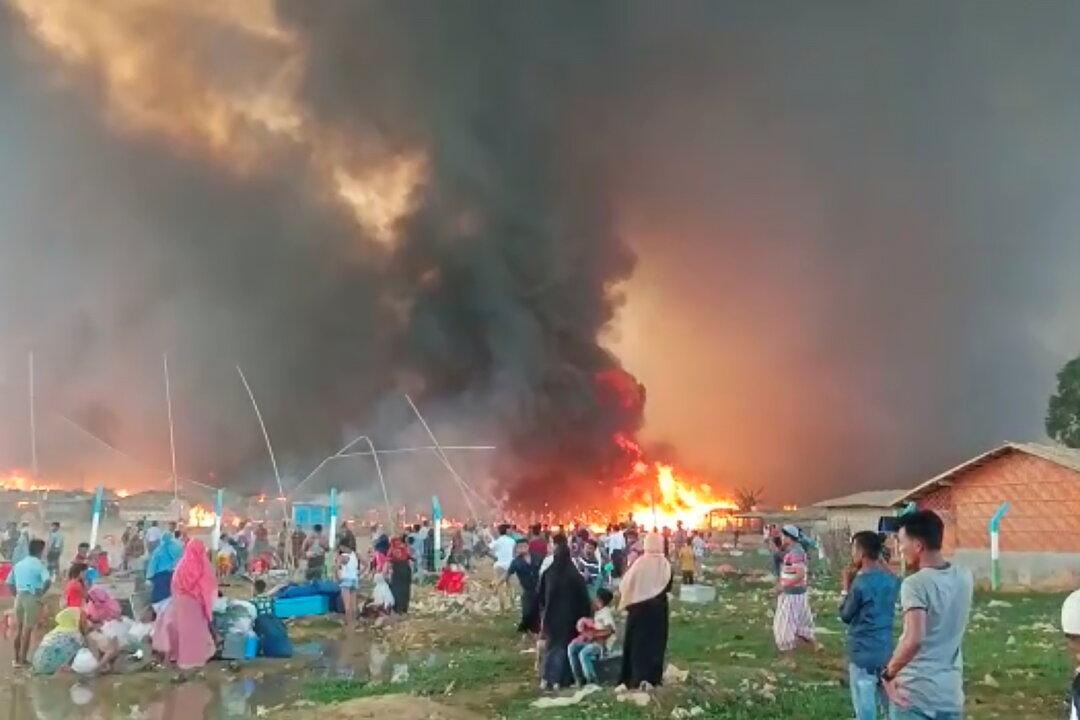More than 5,000 people were displaced after a massive fire swept through a Rohingya refugee camp in southern Bangladesh on Jan. 9, police said.
The fire broke out at Camp 16 in Cox’s Bazar, where more than a million Rohingya refugees live, a spokesman for the Armed Police Battalion, Kamran Hossain, said. About 1,200 houses were reportedly engulfed in flames, although there have been no reports of casualties so far, he said.





